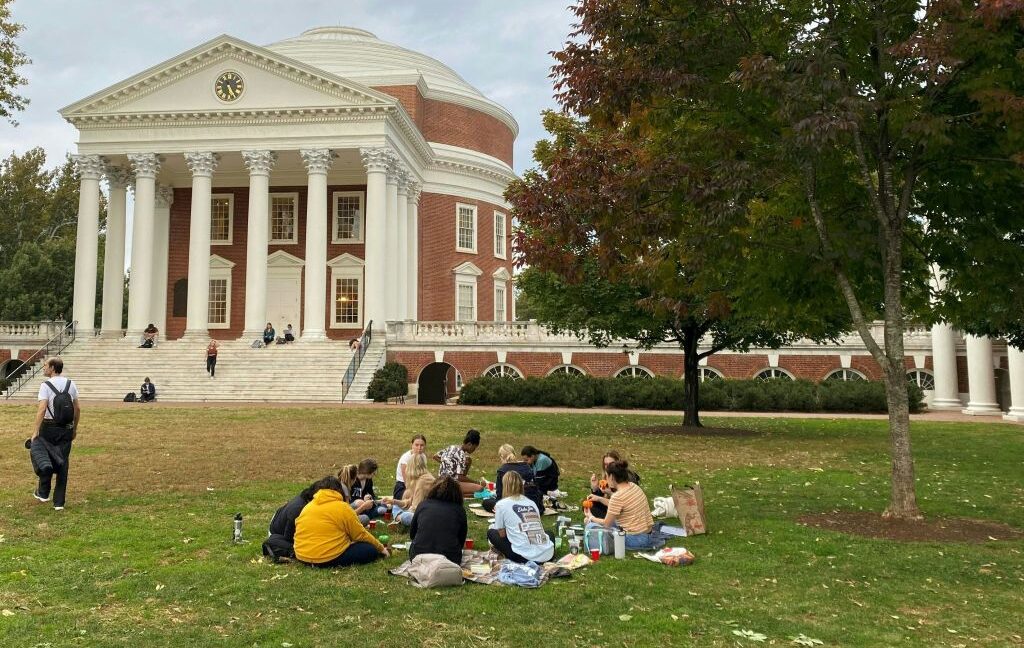Science
Trump Administration Demands University Compliance for Funding

The Trump administration has proposed a controversial plan that would require nine universities to align their operations with specific federal priorities in exchange for substantial funding. This initiative, reported by The Wall Street Journal on March 29, 2024, threatens to withdraw federal support from institutions that do not comply, potentially crippling their operations. The document, titled “Compact for Academic Excellence in Higher Education,” was sent to a mix of state and private universities, including notable names such as the University of Arizona, Brown University, and Dartmouth College.
Under the proposed agreement, the federal government would exert significant control over university admissions, hiring practices, and grading standards. The administration aims to standardize admissions criteria based solely on “objective” measures such as GPA and standardized test scores. Schools would be required to publish these criteria and anonymized data comparing the performance of admitted and rejected students.
The Compact also raises concerns regarding the admission of international students. Universities would be instructed to limit foreign admissions to no more than 15 percent of the total student population. Additionally, accepted international students would be required to participate in instruction on American civics, reflecting the administration’s focus on promoting certain ideological values on campus.
One of the more controversial aspects of the Compact is its call for universities to foster a “vibrant marketplace of ideas.” The document states that signatories must ensure a broad spectrum of ideological viewpoints is represented, taking measures to prevent any single ideology from dominating discussions. Specifically, this includes revising governance structures to address perceived biases against conservative ideas.
The Compact outlines numerous additional requirements, including measures to assess viewpoint diversity within academic departments and a prohibition on protests that disrupt classes. Furthermore, the administration has targeted definitions of gender, insisting that institutions define terms like “male” and “female” based on reproductive functions and biological processes.
The proposed changes extend beyond governance to the realm of academic grading. Universities would be mandated to ensure grades reflect “demonstrated mastery of a subject,” with the expectation that anonymized grade distributions be published to prevent inflation or deflation. Critics argue that these demands may lead to unintended consequences, including skewed grade distributions if entire classes perform well.
Financially, the Compact imposes a five-year tuition freeze and requires universities with endowments exceeding $2 million per student to offer free tuition for students majoring in hard sciences. This provision has raised concerns about incentivizing students to pursue specific fields while undermining the broader academic environment.
The extensive nature of the requirements implies that universities would need to establish new bureaucracies to ensure compliance, all while facing potential referrals to the Department of Justice for non-compliance. Critics argue that this contradicts the administration’s stated goal of reducing administrative burdens within higher education.
Many observers view the Compact as part of a broader strategy by the Trump administration to undermine U.S. universities and their scientific research capabilities. This approach has been echoed by figures such as J.D. Vance, who previously stated the need to “honestly and aggressively attack the universities” in the country.
The implications of this initiative could have far-reaching effects on the landscape of higher education in the United States, fundamentally altering the relationship between universities and federal funding. As the administration moves forward with these demands, it raises significant questions about academic freedom, the role of federal oversight in education, and the future of scientific research in the country.
-

 Education3 months ago
Education3 months agoBrandon University’s Failed $5 Million Project Sparks Oversight Review
-

 Science4 months ago
Science4 months agoMicrosoft Confirms U.S. Law Overrules Canadian Data Sovereignty
-

 Lifestyle3 months ago
Lifestyle3 months agoWinnipeg Celebrates Culinary Creativity During Le Burger Week 2025
-

 Health4 months ago
Health4 months agoMontreal’s Groupe Marcelle Leads Canadian Cosmetic Industry Growth
-

 Science4 months ago
Science4 months agoTech Innovator Amandipp Singh Transforms Hiring for Disabled
-

 Technology4 months ago
Technology4 months agoDragon Ball: Sparking! Zero Launching on Switch and Switch 2 This November
-

 Education4 months ago
Education4 months agoRed River College Launches New Programs to Address Industry Needs
-

 Technology4 months ago
Technology4 months agoGoogle Pixel 10 Pro Fold Specs Unveiled Ahead of Launch
-

 Business3 months ago
Business3 months agoRocket Lab Reports Strong Q2 2025 Revenue Growth and Future Plans
-

 Technology2 months ago
Technology2 months agoDiscord Faces Serious Security Breach Affecting Millions
-

 Education4 months ago
Education4 months agoAlberta Teachers’ Strike: Potential Impacts on Students and Families
-

 Education3 months ago
Education3 months agoNew SĆIȺNEW̱ SṮEȽIṮḴEȽ Elementary Opens in Langford for 2025/2026 Year
-

 Science4 months ago
Science4 months agoChina’s Wukong Spacesuit Sets New Standard for AI in Space
-

 Business4 months ago
Business4 months agoBNA Brewing to Open New Bowling Alley in Downtown Penticton
-

 Business4 months ago
Business4 months agoNew Estimates Reveal ChatGPT-5 Energy Use Could Soar
-

 Technology4 months ago
Technology4 months agoWorld of Warcraft Players Buzz Over 19-Quest Bee Challenge
-

 Business4 months ago
Business4 months agoDawson City Residents Rally Around Buy Canadian Movement
-

 Technology2 months ago
Technology2 months agoHuawei MatePad 12X Redefines Tablet Experience for Professionals
-

 Technology4 months ago
Technology4 months agoFuture Entertainment Launches DDoD with Gameplay Trailer Showcase
-

 Top Stories3 months ago
Top Stories3 months agoBlue Jays Shift José Berríos to Bullpen Ahead of Playoffs
-

 Technology4 months ago
Technology4 months agoGlobal Launch of Ragnarok M: Classic Set for September 3, 2025
-

 Technology4 months ago
Technology4 months agoInnovative 140W GaN Travel Adapter Combines Power and Convenience
-

 Science4 months ago
Science4 months agoXi Labs Innovates with New AI Operating System Set for 2025 Launch
-

 Technology4 months ago
Technology4 months agoNew IDR01 Smart Ring Offers Advanced Sports Tracking for $169










